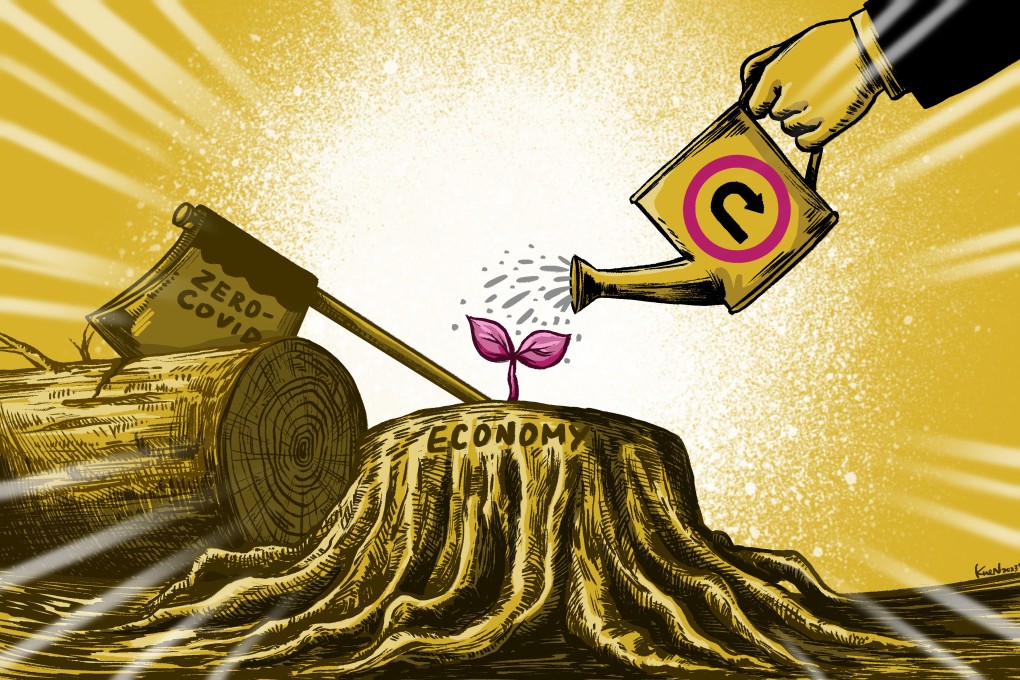Advertisement
Why China’s zero-Covid U-turn has cast a ‘long shadow’ over Beijing’s economic leadership
- Beijing’s sudden – and chaotic – break from zero-Covid has cost the economy and raised questions about the country’s top-down economic model
- Scars from three years of coronavirus turmoil are not expected to fade quickly and many of Beijing’s cherished development goals are now in question
Reading Time:5 minutes
Why you can trust SCMP
99+

Frank Tangin Beijing
After three years of tough pandemic controls, China’s sudden U-turn on its zero-Covid policy last month has brought relief but also anxiety that the country is unprepared for the surge in cases. In the third of a five-part series on the policy change and its impact, Frank Tang looks at how three years of zero-Covid and its abrupt end have raised questions about economic governance.
Advertisement
For three years zero-Covid haunted private businesses, foreign investors and ordinary citizens in China.
The tourism and the services industries were hammered by lockdowns and bans on public gatherings. Farmers were forced to destroy crops because they could not get their harvest to market. And multinationals mulled diversification.
The reasons behind Beijing’s sudden – and chaotic – break from the policy late last year are unclear, with no official explanation yet provided. But analysts say it has come at a cost and leaves burning questions about how the Chinese economy will be managed by the country’s new leadership team.
“The Covid experience will have political implications that outlast the economics,” said George Magnus, a research associate at Oxford University’s China Centre. “The whole episode casts long shadows over China’s governance system.”
Up until recently, Chinese authorities had justified the hardline controls as a way of saving lives. But the policy U-turn could be recognition on the part of President Xi Jinping – who last year cemented himself as China’s most powerful leader since Deng Xiaoping – that economic hit was unsustainable, said Nicholas Lardy, a senior fellow of the Peterson Institute for International Economics.
Advertisement

Advertisement